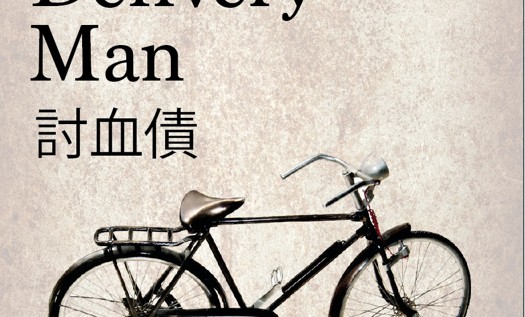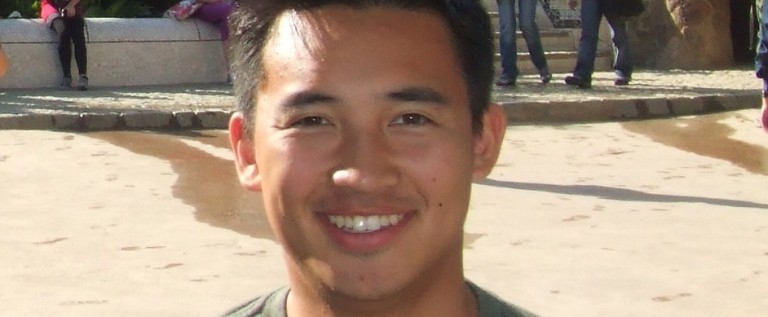Isaac Ho: Inspired by True Events

ALIST columnist Svetlana Kim talks with Isaac Ho about his inspirations, creativity, and the writing process. Ho is the author of four novels, including the fast paced thriller The Repatriation of Henry Chin, the gritty crime drama Death in Chinatown, and the noir comedy Hell is Full of Strippers. His latest novel The Chinese Delivery Man is inspired by the true life murders of New York Chinese delivery men. Isaac wrote and produced the indie feature 1,001 Ways to Enjoy the Missionary Position, an Orwellian drama starring Amanda Plummer. As a playwright, Isaac won the SF Weekly Black Box Award for his play Along For the Ride. Isaac holds an MFA in Screenwriting from UCLA.
SK: The Chinese Delivery Man won the Asian American International Film Festival Screenplay competition. You mentioned in our conversation that the story was inspired by the real life Huang Chen murder case in New York form 2004.
What intrigued you the most in that case?
IH: Huang Chen was one of several delivery men killed in what seemed like an epidemic. I wasn’t living in New York at the time but a friend of mine suggested it would be an interesting story to tell. While I did my research, I discovered that most of the press coverage ended with the arrest of the murderers. Very little information was available about the surviving families. It made me wonder what happened in the absence of hard facts, so I invented my own story for them. That’s why both the screenplay and the novel are subtitled, “Inspired by true events.”
SK: The focus is on the victim’s father, Lau, who seeks justice for his murdered son. Tells us more about Lou and his relationship with his son.
IH: In the fiction story the son Nam Hoi is overseas born and despite living in NY for about a decade, he hasn’t been able to assimilate. He is his father’s right hand running the restaurant and Lau is wracked with guilt over his death. It’s this overwhelming sense of failure to protect his son that drives Lau for most of the story.
SK: I was fascinated to learn that you were writing a novel and screenplay at the same time. Would you share your creative experience?
IH: In a screenplay, you can only write what you can see and hear. In a novel you can really get inside a character’s thoughts and feelings. I think I managed to cull the best from both forms for each: a screenplay that evokes a lot of emotion and a novel that has a lot of visual action.
SK: You said, “Our imagination creates something from nothing. We create our art work from nothing.”
Can you give us any advice on how to spark our imagination?
IH: Be curious. Don’t accept information and stories at face value. Uncover facts and information that people generally don’t know.
Stories are an exploration of the human condition and they work best when they reveal things about ourselves that we didn’t know. Writers have to create the world, the characters and the action from their imaginations. Actors and directors, as talented as they are, can only interpret the words on the page.
SK: Who is your favorite writer? And why? Who influenced you the most to become a great storyteller?
IH: The writer that probably had the largest influence on me was the Russian playwright Anton Chekhov. As a teenager, I worked on an amateur production of Uncle Vanya and was inspired by how real the characters felt. What also struck me about Chekhov’s plays was the sense that the world was also a character, slowly exerting its influence on the characters, their attitudes and decisions. Chekhov was such an acute observer of human behavior that he foretold the collapse of the Russian aristocracy years before it happened.
SK: Stephen King often talks about the opening line, the beginning of the novel and its importance.
When he begins to write a book, he composes in bed before he goes to sleep. He tries to write his first paragraph. He said, ”If I can get that first paragraph right, I’ll know I can do the book.” What was your first sentence in The Chinese Delivery Man?
IH: In truth every line is important. Every line has to compel the reader to read the next one, and the one after that. There’s no point in crafting a spectacular opening line if you’re not willing to spend that time and effort on the rest of the story. That’s not to say you should agonize over every single word but that each word, each sentence, each paragraph, each chapter should be a deliberate choice.
SK: What is your advice on how to become a better writer?
IH: Retain the ability to be awed. Stay curious. Write every day even if you’re not working on a specific project. The more you write the more you improve. The most powerful aspect of writing is the ability to give the reader an opportunity see and feel what it’s like to be someone else. To see the world from a point of view that is wholly different from your own and live the adventure of someone else’s life is where empathy, compassion and understanding begins.
Isaac, thank you very much for your time, participation, and sharing your insights with us all!
Feature image courtesy of David Doko.





